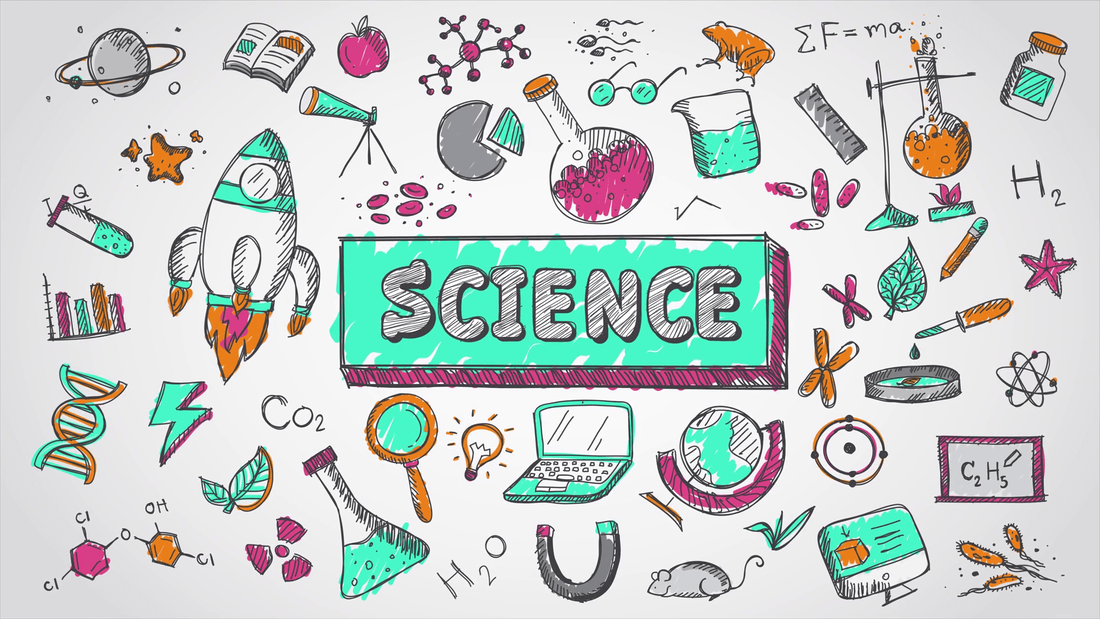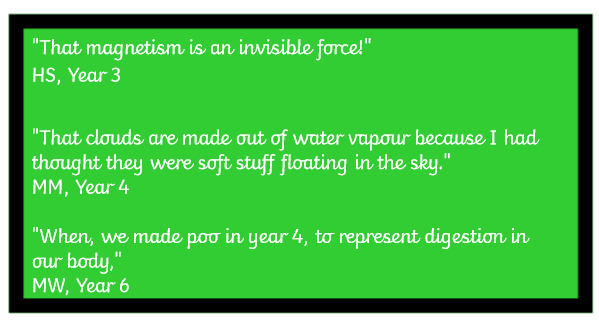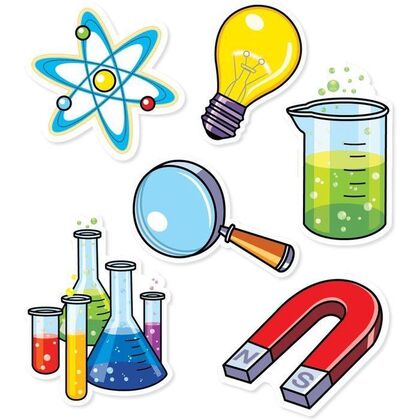Science
|
"Science is fun. Science is curiosity. We all have natural curiosity" - Sally Ride
Intent
At St James’ Primary School, we recognise the importance of Science in every aspect of daily life. As one of the core subjects taught in Primary Schools, we give the teaching and learning of Science the prominence it requires. The Scientific area of learning is concerned with increasing pupils’ knowledge and understanding of our world, and with developing skills associated with Science as a process of enquiry. It will develop the natural curiosity of the child, encourage respect for living organisms and the physical environment and provide opportunities for critical evaluation of evidence. We intend to encourage children to ask questions about the world around them and find answers through conducting scientific enquiries. At St James, in conjunction with the aims of the National Curriculum, our Science teaching offers opportunities for children to:
At St James’ Primary School: Children have weekly lessons in Science throughout Key Stage 1 and 2, using various programmes of study and resources. In Early years, science is taught through the children learning about the world around them in their learning through play. Additional opportunities are provided in Science, such as Mad Science Whole School Days, British Science Week Whole School Scientific Enquiries and educational visits linked to the science curriculum, such as trips to MOSI and visits from Zoo Lab and WonderDome. We endeavour to ensure that the Science curriculum we provide will give children the confidence and motivation to continue to further develop their skills into the next stage of their education and life experiences. |
Science Gallery2022 Pupil VoiceWhat amazes you about Science?
Forest School
Every class in St James takes part in a sequence of at least 6 forest school sessions every year. Forest School has strong cross curricular links and it has a special relationship with science. The environment lends itself to exploring seasonal change, using and discovering properties of materials, plants, habitats, birds and animals and much more! Although Forest School is not an outdoor science lesson, it can act as a retrieval task for children as they recall knowledge and skills learned in their science lessons. |
|
Implementation Teachers create a positive attitude to science learning within their classrooms and reinforce an expectation that all children are capable of achieving high standards in science. Our whole school approach to the teaching and learning of science involves the following;

Assessment We assess science using Primary Assertive Mentoring to ensure consistent recording, reporting and tracking of pupil progress in science across the whole school. Primary Assertive Mentoring organises the National Curriculum Programme of Study for science into clear assessment criteria for every year group (stage) across the school. We consistently track pupil progress against the relevant criteria for individuals and year groups. The ‘one sheet to view’ overview of children's performance across all areas which informs teaching, targets and interventions. |
Impact
Science Subject Leaders, have created science progression documents which map our school’s curriculum coverage across EYFS, KS1 and KS2. The clear structure and incremental nature of these documents is designed to provide guidance as to what teaching and learning will be covered within particular year groups and key stages. Teaching is organised in a way that considers; • that some topics and statements require coverage throughout the year • the complexity of concepts involved • the relationship between topics and their related statements within a year • if a topic be revisited in different contexts. • if some topics require more time than others. In science, the curriculum programme of study is broken up into discrete areas:
Children’s understanding, capability within and mastery of science will be supported through this progressive curriculum by:
| ||||||||||||||||||||||||||||||


